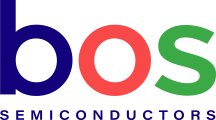|
Meet the Technology Startups in the Key Future Industries - BOS Semiconductors
관리자 │ 2023-03-06 HIT 41911 |
|---|
Hwaseong Jeon's Technology Startup Targeting - Key Future Industries
In Korea, there is a vibrant startup ecosystem in various fields such as healthcare, next-generation aviation, fintech, and semiconductors. However, early-stage companies face difficulties due to a lack of research and engineering talent, and the proportion of doctoral graduates entering the industry is less than 10%, hindering the growth of the domestic R&D ecosystem. Government support to address these issues remains crucial. According to research by the Korea Industrial Technology Association, approximately 98% of graduates from Stanford University in 2014 went on to take up jobs in the science and engineering fields and 97% of Google's hires were engineering and science majors. In contrast, more than 50% of graduates from Seoul National University's engineering programs chose to seek employment at one of Korea's large conglomerate companies or study for professional schools. Notwithstanding such difficulties, KDB Next Round, a startup accelerator program, selected numerous startups as part of its incubation program, which focuses on team building and HR reinforcement to attract investment. Medility is one such startup that pursues the digital transformation of pharmacies by automating repetitive tasks, allowing pharmacists to focus on patient care. Their solution, Pilleye, is an AI-powered medication management platform that automates verification and ordering of medications. Medility plans to expand its services to become a one-stop platform for pharmaceutical needs. Beyondmedicine is a startup that is developing a digital therapy solution for temporomandibular joint (TMJ) disorders, which affect around 470,000 patients in Korea annually. The primary causes of TMJ disorders are emotional stress and bad habits. BeyondMedicine's software, Clickless, was developed by five specialists through three years of R&D and is optimized for TMJ treatment. The developed SW enables effective initial treatment, prevents the development into a chronic disease, and reduces recurrence rates of TMJ. Weflo offers safety diagnosis solutions and various care services for various electric mobility devices such as drones, urban air mobility (UAM), and electric cars. Their patented AI unmanned solution, Verti-pit, uses a fusion sensor to diagnose and predict flight safety issues in 1 second, securing operational uptime and reducing maintenance costs. Weflo currently provides traffic control services to drone and UAM stations and plans to expand its services to electric cars. Timepercent is a fintech startup that has developed a digital investment strategy market platform called Trading Bank. As interest in quantitative trading continues to grow, platform users can easily develop quantitative-based trading strategies. The completed strategies can be traded in the market via accurate verification. In addition, Timepercent is planning to roll out a robo-advisory service that makes automatic investments using the developed strategies. Through these efforts, Timepercent is expected to contribute to establishing a safe trading culture. Four-chains is a deep tech company that develops AI-related algorithms and data analysis platforms. Its goal is to replace overseas cryptographic solutions, prevent data leaks, and save licensing costs. Various services are provided through the web-based platform FCTS. Its core service is the "ECHC encryption solution", a next-generation cryptographic source technology that improves the speed aspect of existing homomorphic encryption and has both lightweight and security features. This enables fast and secure accurate analysis. BOS Semiconductors is an automotive semiconductor startup that is led by a founding team of industry's top experts with a rich experience in the entire semiconductor process from SoC design and development to fabrication. BOS is currently developing a state-of-the-art SoC platform that has been verified, and seeks to leverage networks with various partners in the semiconductor value chain for commercialization of its technology. The automotive semiconductor market is expected to rapidly grow at an average annual rate of 13% over the next five years, and BOS Semiconductors is pushing the mobility innovation forward while achieving cost savings as the automotive industry moves from a manufacturing-heavy industry to an electronic, software, and app-centric service industry. Rowain is developing a new type of plant factory platform to tackle agriculture and climate crises. By utilizing autonomous transport robots and mobile cultivation devices, it has solved the low profitability issues and inherent limitations faced by current plant factories. The core research technology that gave birth to Rowain's robots increased the cultivation integration rate by 90% and reduced the required workforce at plant factories by half. It aims to maximize profitability of clients by selling management services using its platform. Rowain's plant factory is expected to be a means of solving problems such as greenhouse gas emissions, aging of agricultural populations and shortage of agricultural water and food. These startups showcase the potential for innovation and growth in various key industries of the future in Korea, and government support will further boost their success and contribution to the overall economy. Hwaseong Jeon (CEO of CNT Tech) glory@cntt.co.kr |
| previous post | Jaehong Park is Named as Honorary Professor at Pusan National University |
|---|---|
| next post | BOS Semiconductors Selected to Participate in the Super-gap Startup 1000 Project |








